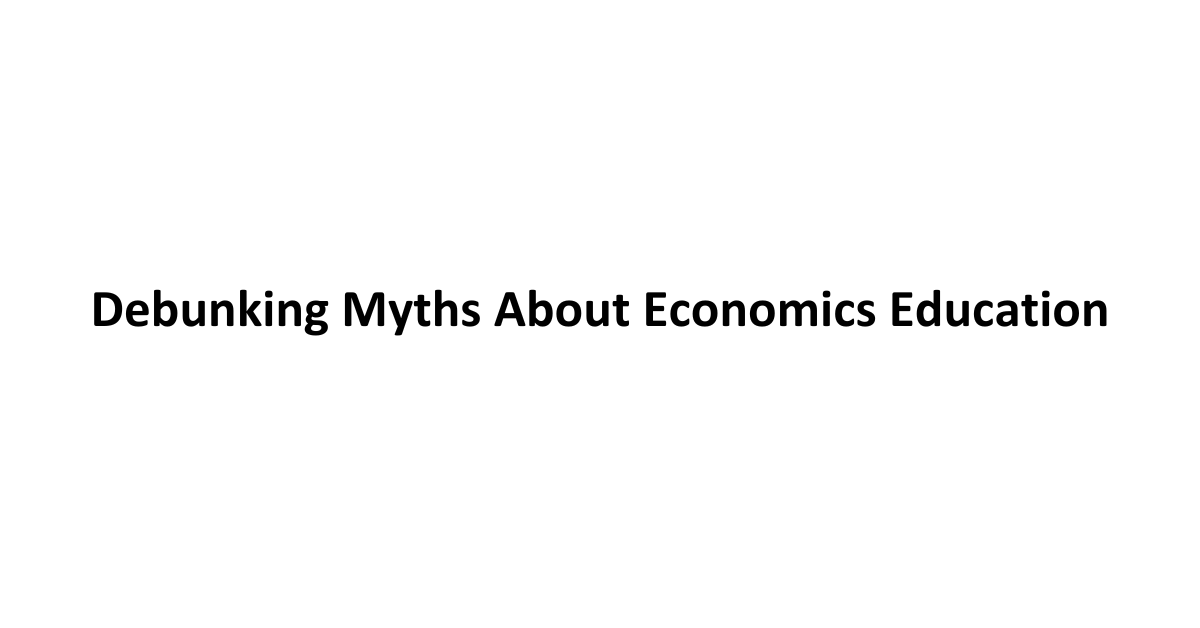23 Feb Debunking Myths About Economics Education
One of the subjects that is always in demand among students is economics. Most people’s interest in economics is sparked by the wide variety of career options available. However, it is undeniable that understanding economics is a challenging subject. It can be hard to comprehend the theories and concepts. Students think about enrolling in Singapore’s econ tuition for this reason. However, there are a number of myths that discourage people from enrolling in the program. The top economics tuition myths that you must reject are listed below. Let’s look at it!
• Only weak students should pay for economics tuition.
Many people believe that weak students in Singapore should not be required to pay for A-level economics tuition. But it’s not accurate. Without a doubt, weak students can benefit more from the tuition. However, good students also need to pay tuition. Your kid might excel in economics. But without expert guidance, completing various assignments and studying for the test can be challenging. The JC Economics tutor can give the students the necessary guidance so they can perform better than their classmates. By giving the students a thorough understanding of the fundamental ideas, they can aid in laying a solid foundation for them. In addition, the knowledgeable tutors can offer advice on the most effective study methods for economics classes so that you can master all the material before the test. Additionally, the thorough notes that the tutors provide can help you better review every topic and improve your exam grades.
• The cost of economics tuition is high.
Another widely held misconception about economics education is that it is expensive and out of reach for most people. Many parents are unable to give their children the additional support they require because of this myth. It costs money to enrol your child in economics classes. It is not always expensive though. In Singapore, it is simple to locate a tutor for economics who offers affordable tutoring services.
Professional tutors open up their services to more students by requesting a fair fee. The professionals’ primary goal is to assist students in mastering the material and doing well on exams. The cost of tuition may change. They are however inexpensive.
• Classroom instruction yields greater learning than tuition
Due to the belief that kids learn more in a classroom, many people choose not to pay for economics classes. The effectiveness and importance of classroom instruction for students cannot be denied. It is not true that students learn more in a classroom setting. A large number of students learn together in a classroom setting. Therefore, it is challenging for the teacher to provide individualized attention. However, you can easily receive individualized care if you enroll in economic tuition.
Additionally, some students are very hesitant to ask questions in class. The environment is made more interactive with the aid of tuition. You can ask the tutors questions about economics and get their responses. It enables the students to get all of their questions answered and solidify their fundamentals. All of these factors may help students learn more effectively and perform better in exams.
Conclusion
Knowing the common misconceptions about economics tuition will help you to avoid falling for them. The study of economics is advantageous for students. It can build a solid foundation for them and increase their success. JC A child’s future can be shaped by enrolling them in economics classes in Singapore. Prepare yourself to pursue a prosperous career in the field of economics by learning the theories from the professionals.







